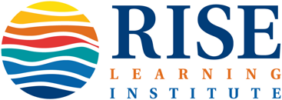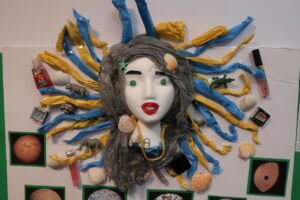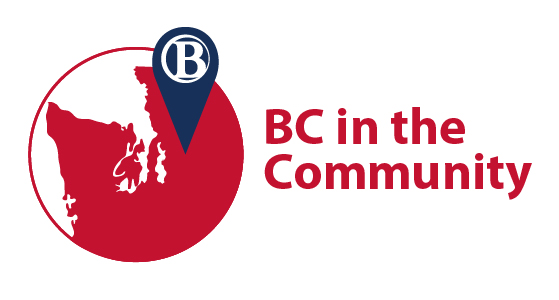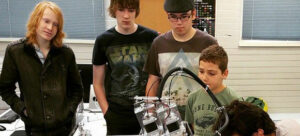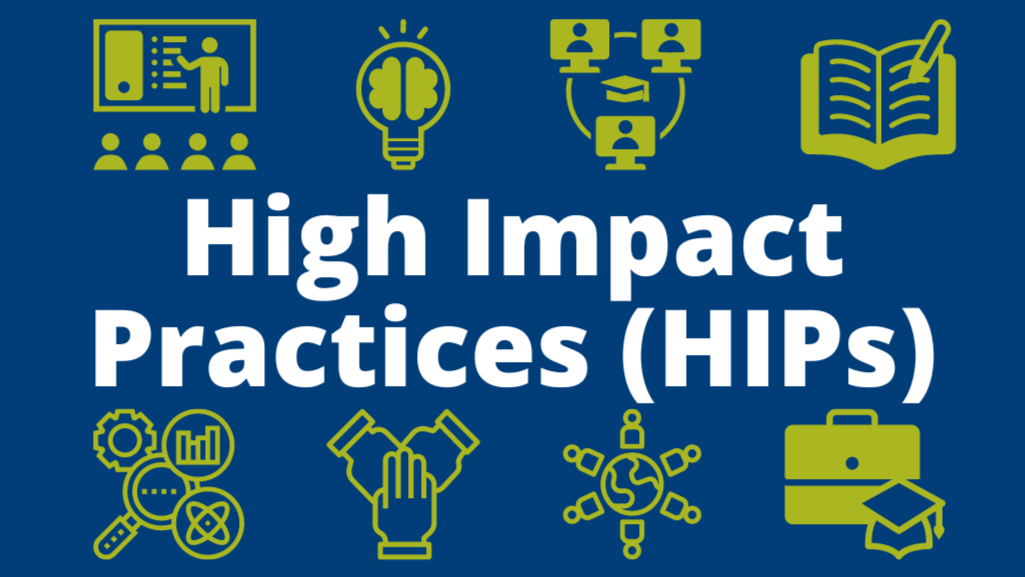
At Bellevue College, we are dedicated to providing our students with enriching educational experiences that extend beyond the traditional classroom. High Impact Practices (HIPs) are transformative teaching and learning methods proven to enhance student engagement, learning, and success.
What Are High Impact Practices (HIPs)?
High Impact Practices (HIPs) are a set of educational practices that have been extensively researched and shown to yield significant benefits for students from diverse backgrounds. Students involved in HIPs are more likely to remain enrolled in the learning community, graduate with strong GPAs, and master the essential skills impressive to prospective employers.
Common High-Impact Educational Practices
These are culminating experiences that require students nearing the end of their college years to create a project of some sort that integrates and applies what they have learned.
Students can meet with Career Specialists to explore their interest, skills, and best-fit careers.
Students can explore majors and career that match their values and interests.
Students can take a variety of assessments to discover their interests and strengths.
Collaborative learning merges two key goals:
- Learning to work and solve problems with others
- Sharpening one’s individual understanding by active listening to the insights of others
Examples range from study groups within a course, team-based assignments and writing, and cooperative projects and research.
The older idea of a “core” curriculum has evolved into modern forms: a set of required common courses OR vertically organized gen ed programs including advanced integrative studies and/or required participation in a learning community.
Programs often combine broad themes with curriculum and co-curricular options.
Many institutions now emphasize courses and programs helping students explore cultures, life experiences, and global views different from their own.
Studies may address U.S. diversity, world cultures, or both; often exploring difficult differences (racial, ethnic, and gender inequality).
Intercultural studies are often augmented by experiential learning in the community and/or study abroad.
ePortfolios enable students to electronically collect their work over time, reflect upon their personal and academic growth, and share selected items with others (professors, advisors, potential employers).
Personal websites provide students with space to reflect on their curricular and co-curricular experiences, curate evidence of skills and learning, and display their knowledge through various forms of media (presentations, documents, videos, images, etc.)
Bringing small groups of students together with faculty/staff regularly.
Emphasizes critical inquiry, frequent writing, information literacy, collaborative learning, and skills developing students’ intellectual and practical competencies.
Can also involve students with cutting-edge questions and faculty research.
Internships are another growing common form of experiential learning.
The goal is to provide students with direct experience in a work setting typically related to their career interests; giving them the benefit of supervision and coaching from professionals in the field.
The key goals for learning communities are encouraging integration across courses and involving students with big questions that matter beyond the classroom.
Students take 2 or more linked courses as a group and work closely together and with professors.
This may involve exploring a common topic and/or reading through different disciplines.
Bellevue College facilitates High-Impact Communities of Practice at RISE, which are collaborative groups of faculty who share a common interest or focus in specific educational approaches or subject areas.
In these programs, field-based “experiential learning” with community partners is an instructional strategy.
The main goal is to provide students with direct experience with issues they are studying and with efforts to analyze and solve real community problems, combined with reflection in courses.
The idea of giving back to the community as an important college outcome and working with community partners as good preparation for citizenship, work, and life is modeled.
Many colleges and universities now provide research experiences for students in all disciplines.
Presently, Undergraduate Research is most prominently in the science areas.
The goal is to involve students with actively contested questions, empirical observation, technologies, and the excitement that comes from working to answer questions.
These courses emphasize writing at all levels and across the curriculum.
The effectiveness of this repeated practice across the curriculum has paralleled efforts in quantitative reasoning, information literacy, and other such areas.
High-Impact Practices can help students develop skills that are essential in the workplace and that transfer to a wide range of settings – such as communication, problem solving, and critical thinking.
– Richard F. Vaz, Director of the Center for Project-Based Learning at Worcester Polytechnic Institute
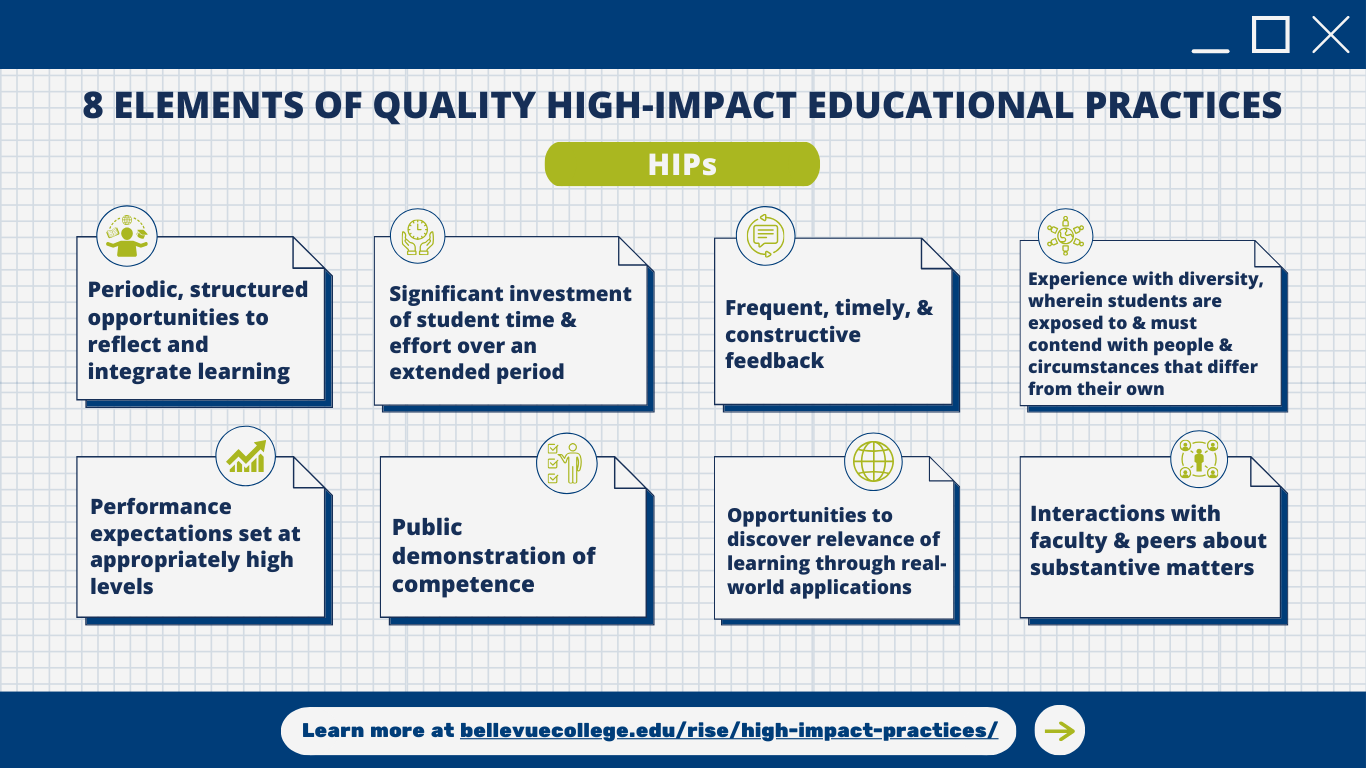
Elements of High-Impact Educational Practices
HIPs encourage students to reflect on their experiences and connect them to their personal values and beliefs. This reflection helps students understand themselves better, see their role in the larger world, and develop the confidence and ethical grounding to make positive contributions to society.
HIPs require students to dedicate substantial time and effort to meaningful tasks. This commitment deepens their engagement with the activity, strengthens their academic dedication, and enhances their overall college experience.
HIPs provide students with regular and immediate feedback on their performance. Whether through formal evaluations or informal interactions, students receive continuous guidance and support from supervisors and peers, helping them to improve and succeed.
HIPs expose students to diverse perspectives by engaging them with people and situations different from their own. These experiences challenge students to think critically, adapt to new circumstances, and develop new ways of responding to intellectual and practical tasks.
HIPs set challenging performance standards for students through demanding assignments and projects. These high expectations, tailored to students’ initial abilities, encourage them to strive for excellence and surpass their current skill levels.
HIPs can help students showcase their skills and knowledge through public demonstrations, such as oral presentations to classmates or narrative evaluations from supervisors. These activities provide opportunities for students to be assessed and recognized for their achievements in a public setting.
HIPs offer students chances to see how their learning applies in various real-world contexts, both on and off campus. These experiences help integrate, synthesize, and apply knowledge, leading to deep and meaningful learning.
HIPs foster meaningful interactions with faculty and peers on important topics over extended periods. These interactions help students build meaningful relationships with mentors, advisors, and peers who share intellectual interests and support their success.
Last Updated September 11, 2024
